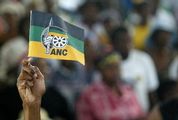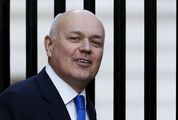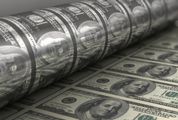State urged to help localise aluminium value chain
by David Furlonger,
2016-03-18 06:17:51.0
MERCEDES-BENZ SA (MBSA) wants the government to encourage local beneficiation of aluminium, which would allow motor companies to stop importing up to 50% of metals used in their cars.
CEO Arno van der Merwe said on Thursday his company was working with the industry and the government to identify raw materials that could be developed locally for inclusion in cars made in SA.
Some firms claim local content of 70% or more in their vehicles, but the industry average is just more than 40%. Local content is defined as the value added in SA of the ex-factory cost of a vehicle including parts and manufacturing costs such as labour and energy.
Mr van der Merwe said MBSA imported all its aluminium, which accounted for 40%-50% of the construction of C-Class cars assembled at its East London plant. Industry-wide demand for the metal is set to increase significantly. "It’s the material of the future," he said.
The existing supply process "is not sustainable", he added.
"We have a strong focus with government to identify raw materials that can be localised."
MBSA was also keen to localise some of the polymers and plastics it used. Sasol was among the companies involved in discussions.
However, Mr van der Merwe said the motor industry could not achieve its goals alone. SA needed a robust, co-ordinated industrialisation strategy across all sectors.
In a report published at the end of last year, consultancy Econometrix warned that lack of a comprehensive strategy threatened SA’s industrial development. The motor industry, it said, was a rare example of how an industry could develop with proper support.
The industry has had consistent incentive policies since 1995. The current model, the Automotive Production and Development Programme, is due to expire in 2020, but the government has committed to continued support after that.
Mr van der Merwe spoke at the presentation of MBSA’s 2015 business results. In a sharply declining new-vehicle market, the company increased revenue last year by 45%, from R45.3bn to R65.9bn.
As a net exporter, the company avoided the worst of the rand’s depreciation. MBSA exports 90% of production to more than 80 markets. Last year, it built a record 102,000 C-Class cars, as well as 4,000 trucks and buses.
A weak rand should not necessarily be seen as a negative, Mr van der Merwe said. As long as it stabilised and avoided the recent wild fluctuations, "it represents a real opportunity for local industry to capitalise on international competitiveness and (exports)".

Aluminium coils. Picture: BLOOMBERG
MERCEDES-BENZ SA (MBSA) wants the government to encourage local beneficiation of aluminium, which would allow motor companies to stop importing up to 50% of metals used in their cars.
CEO Arno van der Merwe said on Thursday his company was working with the industry and the government to identify raw materials that could be developed locally for inclusion in cars made in SA.
Some firms claim local content of 70% or more in their vehicles, but the industry average is just more than 40%. Local content is defined as the value added in SA of the ex-factory cost of a vehicle including parts and manufacturing costs such as labour and energy.
Mr van der Merwe said MBSA imported all its aluminium, which accounted for 40%-50% of the construction of C-Class cars assembled at its East London plant. Industry-wide demand for the metal is set to increase significantly. "It’s the material of the future," he said.
The existing supply process "is not sustainable", he added.
"We have a strong focus with government to identify raw materials that can be localised."
MBSA was also keen to localise some of the polymers and plastics it used. Sasol was among the companies involved in discussions.
However, Mr van der Merwe said the motor industry could not achieve its goals alone. SA needed a robust, co-ordinated industrialisation strategy across all sectors.
In a report published at the end of last year, consultancy Econometrix warned that lack of a comprehensive strategy threatened SA’s industrial development. The motor industry, it said, was a rare example of how an industry could develop with proper support.
The industry has had consistent incentive policies since 1995. The current model, the Automotive Production and Development Programme, is due to expire in 2020, but the government has committed to continued support after that.
Mr van der Merwe spoke at the presentation of MBSA’s 2015 business results. In a sharply declining new-vehicle market, the company increased revenue last year by 45%, from R45.3bn to R65.9bn.
As a net exporter, the company avoided the worst of the rand’s depreciation. MBSA exports 90% of production to more than 80 markets. Last year, it built a record 102,000 C-Class cars, as well as 4,000 trucks and buses.
A weak rand should not necessarily be seen as a negative, Mr van der Merwe said. As long as it stabilised and avoided the recent wild fluctuations, "it represents a real opportunity for local industry to capitalise on international competitiveness and (exports)".
























Change: 1.19%
Change: 1.36%
Change: 2.19%
Change: 1.49%
Change: -0.77%
Data supplied by Profile Data
Change: -0.19%
Change: 0.69%
Change: 1.19%
Change: 0.00%
Change: 0.44%
Data supplied by Profile Data
Change: 0.62%
Change: 0.61%
Change: 0.23%
Change: 0.52%
Change: 0.12%
Data supplied by Profile Data
Change: -0.21%
Change: -1.22%
Change: -0.69%
Change: -0.51%
Change: 0.07%
Data supplied by Profile Data